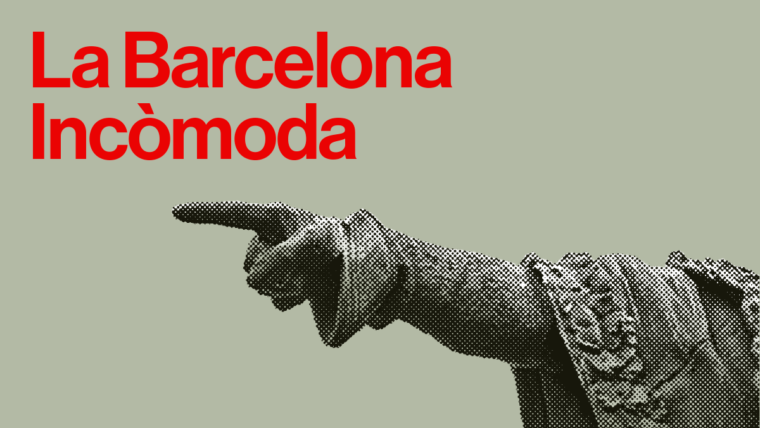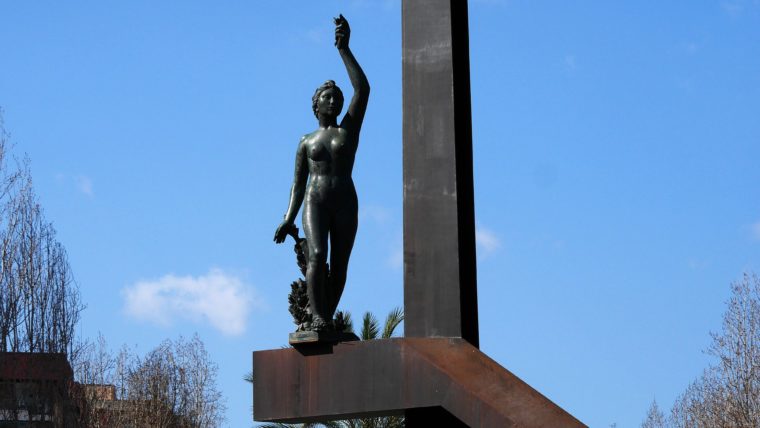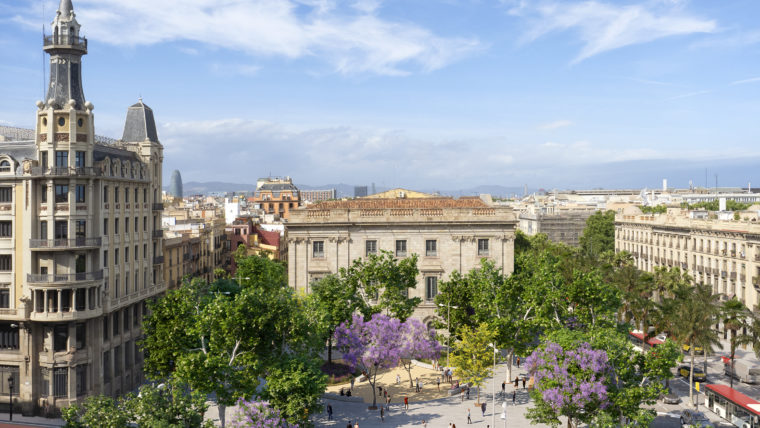“La Barcelona incòmoda”: debates on memory and public space
The former Model prison is the scene for some discussions on memory and public spaces from 6 to 11 April. “La Barcelona incòmoda” is a cycle of five round tables with professionals from the fields of history, history of art, art and journalism. The discussions will look at the presence of historical symbols in monumental art in the city and what they represent.
The Councillor’s Office for Democratic Memory is proposing this series of debates to further explore, reflect and address conflicts with contemporary memory present in the city’s heritage.
This “uncomfortable Barcelona” is home to symbols which do not represent all citizens: in some cases they can be offensive, as they are presented in public space, as symbols that have legitimised privilege, Francoism, colonialism and slavery. At the same time, they have silenced other realities of popular movements in Barcelona, its revolutionary side and its democratic struggles.
The sessions will analyse policies relating to memory, public art and the most important urban challenges in the streets of today’s Barcelona. The conclusions will sum up the meanings and values which need to be present in the city’s new projects, from both the perspective of public space as a place for social cohesion, and the perspective of the expression of public art.
All the sessions are on Wednesdays and will be held in the conference space at the former Model prison at 6 pm:
- Table 1. Opening conference and first round table, part of the Republican Spring (6 April): lecture by the journalist Peio H. Riaño entitled “Los cuerpos insoportables”. This will be followed by the round table “Monumentalitat republicana en democràcia”, looking at the issue of the symbol of the Republic in the city.
- Table 2. “Memòria-oblit: simbolisme i repressió” (20 April): a look at the Francoist symbols which still remain in our public space and an analysis of the conditions in which memory of the anti-Francoist struggle has been addressed.
- Table 3. “Entre el dret al patrimoni i el poder de la iconoclàstia” (27 April): in this session we will be exploring the debate about the right to heritage as opposed to the right to the public expression of anger and discontent.
- Table 4. “Via Laietana. Estratègies de la memòria” (4 May): a look at this avenue, a symbol of Barcelona’s modernity, based on two lines of analysis: identifying the main symbols of its reconfiguration, understood as a public scenario for bourgeois values, and the debate on uncomfortable symbols and the new values in connection with the urban project soon to transform the avenue’s public space.
- Table with conclusions (11 May): this session brings together the sum of reflections from the debates about what needs to be done with symbols that reach out to our contemporariness, where institutions come in and how and where should they be reinterpreted.




Tags associated with the news item
Related news
-
 Urban planning and infrastructures
Urban planning and infrastructures
Urban planning and infrastructures
Urban planning and infrastructuresVia Laietana embarks on the process to become greener, friendlier and more sustainable
08/02/2022 19:34 h
-
 Feminism-women
Feminism-women






